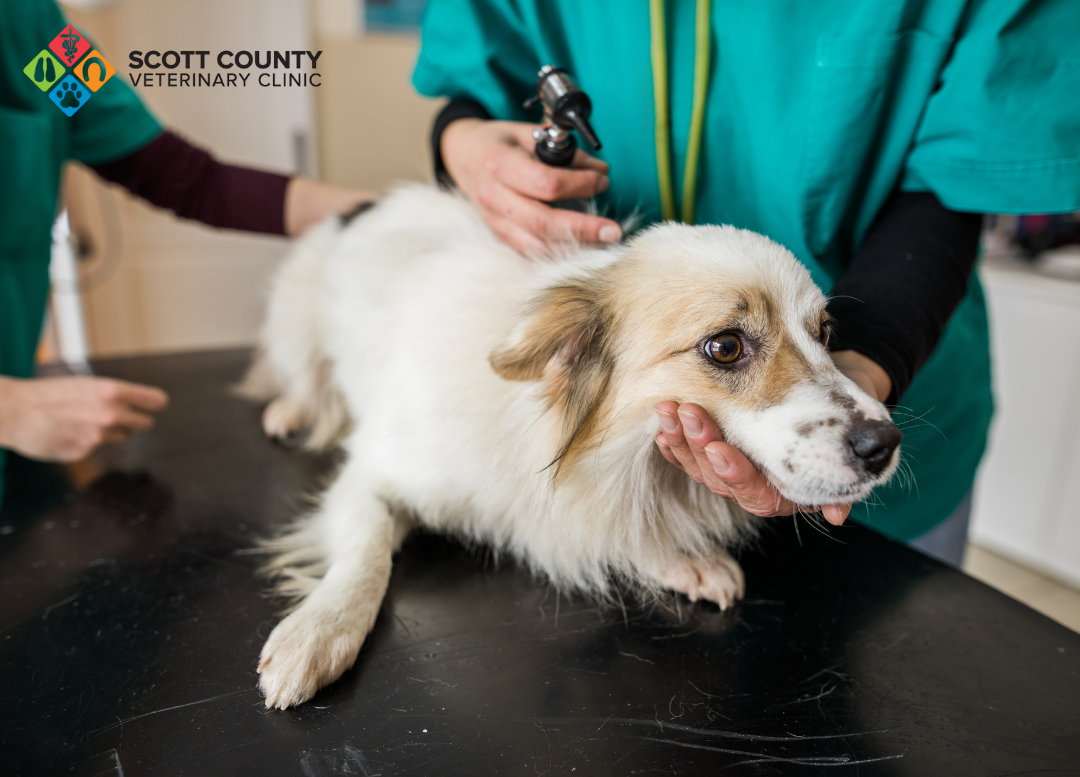My dog is vomiting and has diarrhea. Can you tell me what’s wrong with him?”
After 8 years of schooling and 20 years of experience in veterinary practice, I can honestly say: “No, I can’t. – Not over the phone.”
This is among the most common conversations all veterinarians have with owners. “My pet has clear definite symptoms. I can tell you when they started. I can give you details. Why can’t you just tell me what’s wrong over the phone? Why do I have to come in for an appointment?”
The problem with vomiting and diarrhea is that these same symptoms present in the same way for a long list of ailments. A very very long list, in fact. The following is a list of common causes of vomiting and diarrhea:
- Parasites
- Toxins
- Foreign body ingestion/obstruction
- Dietary indiscretion
- Sudden change in diet
- Liver disease
- Kidney disease
- Inflammation of the pancreas
- Cancer
- IBD (inflammatory bowel disease)
- Stress/anxiety
- Acid reflux
- Cushing’s disease
- Addison’s disease
- Parvovirus (dogs)
- Hyperthyroidism (cats)
I could go on and on, and remember, these are just the common ones!
This is why we have to physically examine your pet in person when he/she presents with these symptoms. It could be parvovirus, which is often fatal if not treated quickly. Or it could simply be they ate something that didn’t sit well with them. We cannot know without the diagnostic tools that are available to us at our clinics.

So, here’s what you can expect when you bring in a pet suffering from vomiting and diarrhea;
We will start off with a simple physical exam, where we will check for signs of dehydration, lethargy, abdominal pain, or other symptoms that may have been missed at home. We will often recommend a fecal to look for parasites and bacterial imbalances.
Next we may recommend a basic blood panel. This checks for dehydration which can often happen with fluid loss from vomiting and diarrhea, as well as for signs of infection, inflammation, and anemia. It also evaluates liver, kidney, pancreas, blood sugar, and electrolyte levels. It will tell us if there is excessive protein loss that can happen in severe diarrhea.
In short, bloodwork helps us rule out a lot of major problems and helps direct treatment options.
Since another major concern with these symptoms is bowel obstruction, imaging options such as radiographs and ultrasounds of the abdomen are the next diagnostic tools on our list. Radiographs, or x-rays, are a fast option to look for changes. Sometimes we can see an object that has been swallowed in the GI tract, other times we may see less direct changes that would make us suspicious of obstruction. Ultrasound is another way we can look for changes indicating obstruction.
Imaging is a critical tool to help us decide if exploratory surgery is recommended.
In short, as clear as these two symptoms appear for owners, the causes are so varied that they require a thorough medical examination. Sometimes vomiting and diarrhea can recur, and with so many different causes of vomiting and diarrhea, it usually is necessary for us to do a physical exam and workup each time there is an issue.
I have seen many instances where they had “the same problem before” and it turns out the cause is totally different, and therefore the treatment needs to be different, too. Sometimes, it is the same. With recurring problems, it becomes more important to dig deeper and see if there is a bigger cause that could be addressed. Then we can manage the issue more effectively.

So when your pet is experiencing vomiting or diarrhea, the best thing you can do as a responsible owner is give them access to all the wonderful diagnostic tools modern veterinary medicine has made available to us.
Call us (or your veterinarian), bring them in and we’ll help them get right back on track!

